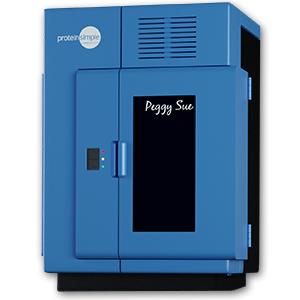Selecting the appropriate drug concentration and frequency requires careful study of the relationship between a drug’s dose and the intended effect. From a simplistic view, it’s like what Goldilocks discovered in the cabin: if you don’t receive enough drug there’s little to no effect and if too much drug is given, the patient may experience toxicity or worse. Careful dose-response studies to understand the pharmacokinetics and pharmacodynamics of a compound are a critical step of drug development and rely on quantitative protein analysis techniques that provide accurate measures of protein abundance following varying dose of a drug.
Simple Western is an ideal platform for dose-response measurements in drug development studies, with high throughput, speed, sensitivity, and accuracy. Simple Western can cut through the noise associated with matrix effects commonly seen with ELISAs, but also dissect out key changes in not only target abundance, but also target degradation or post-translational modifications. Together, this can afford researchers a deeper, and more accurate understanding of how their compound affects the target.
In this webinar, you will learn how Simple Western Charge and Size assays can be leveraged for accurate dose response measurements in a variety of applications including pharmacokinetic assays and targeted protein degradation (TPD).
Speaker
 |
|
Chris Heger, Ph.D.
Director, Applications Science
Analytical Solutions Division, Bio-Techne
|
|
Chris Heger, Director of Applications Science for the Analytical Solutions Division of Bio-Techne, leads a team chartered with creating scientific collateral, fostering collaborations, training, and coming up with new applications. Chris has expertise in immunoassays, capillary electrophoresis, antibody design and production, and chromatography. In recent years, his team has focused on developing analytical solutions for cell and gene therapy researchers. Chris received his doctoral degree in Pharmacology from Cornell University and completed his post-doctoral training at the National Cancer Institute. Upon completion of his post-doctoral training, Chris began working for ProteinSimple (now part of Bio-Techne).
|
|

